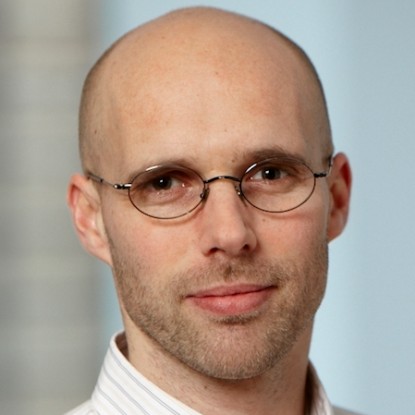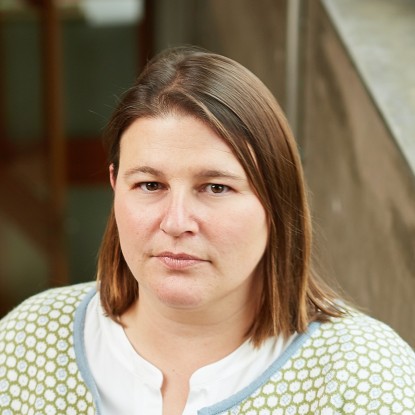Young researchers on air
“Friday Science Bites” podcast covers a wide range of topics
2023/11/13
From AI to pharmaceuticals and chromosomes to laser technology: the “Friday Science Bites” podcast by three TU doctoral students offers young scientists a platform to present their research. We introduce the team in an interview.
Dear Ms Szabó, Ms Gebhardt and Mr Kaysan, you have been running the science podcast “Friday Science Bites” together since the spring. What is it about?
Gréta Szabó: Our podcast is about presenting a (natural) scientific topic in short 20-minute episodes. The focus is clearly on our invited guests, who are experts. We focus on young researchers who are at the beginning of their scientific career. We want to provide an insight into research from the perspective of young, motivated scientists who don't necessarily have the opportunity to explain their project clearly to the general public at every turn. I can remember only too well from my own student days how difficult it is to really imagine the actual research work at university when you're just sitting in lecture theatres. We want to provide an insight into this.
As all three of us also have different backgrounds – Caro is a molecular biologist, Leon is a chemist who is now also researching biotech, and I myself have an engineering background – it was important to us from the outset that we discuss a wide range of scientific fields in the podcast.
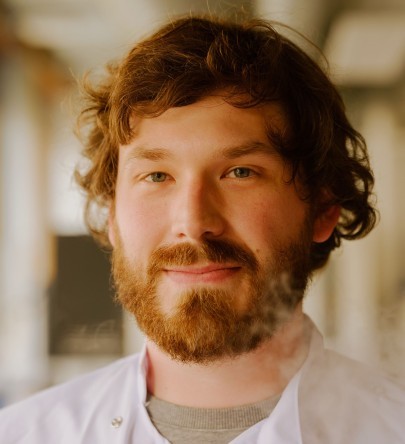
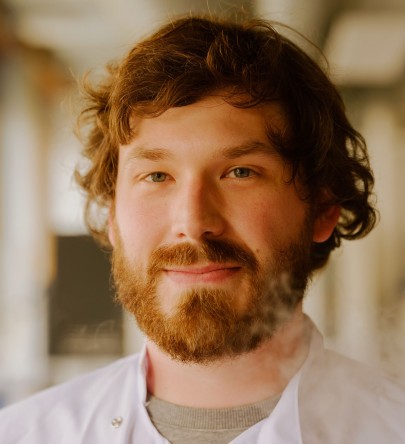
How did you come up with the idea for the podcast? Did you have any role models?
Leon Kaysan: The idea came about during a retreat at the Graduate School of Life Science Engineering in Kleinwalsertal, where all three of us were members. During a workshop on science communication, the idea was to try out different communication channels, and as a group we decided in favour of the podcast format and recorded a short sample episode on a specific topic. As we enjoyed it, we thought: why not just expand the idea a little? It took another year, but we released the first episode just in time for the retreat the following year. We didn't base it on role models, but rather on what we as an audience (students, other PhD candidates, etc.) would like to hear.
Who is your programme aimed at?
Caro Gebhardt: In principle, our podcast is aimed at anyone who is interested in scientific topics. Our aim is to explain complex (scientific) research work as simply as possible so that anyone can understand the topics even without a scientific background. It is particularly important to us to reach students and give them more insights into research and the lives of young researchers.
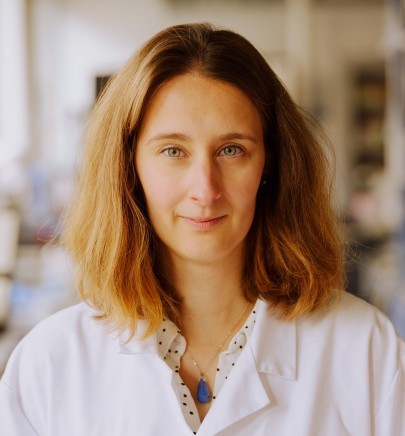
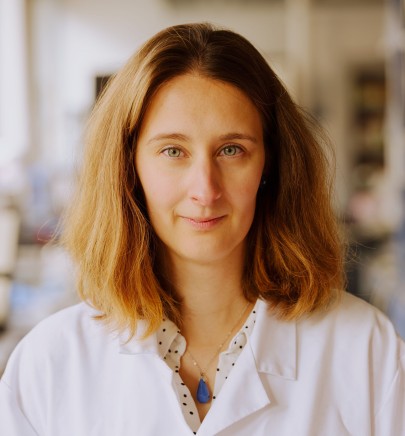
How does “Friday Science Bites” differ from other science podcasts?
Szabó: There are of course many good science podcasts. For me, there are two aspects that characterise “Friday Science Bites”: firstly, informing students about the research environment and the work of various research groups, and secondly, giving young scientists a voice.
On the first point, we try to make sure that we speak from the perspective of: “What are our guest and the group really doing, and how is this relevant to a larger field of research?” We want to discuss the relevance of the individual topics on a large scale, but also give an insight into the day-to-day research work and show what our guests find special about it. We also realise how much we learn about topics and interesting personalities from episode to episode.
The second point is particularly close to my heart. I think there are numerous opportunities for young researchers to present their work to a specialist audience at conferences, but few opportunities to talk about the topic with relatively few technical terms and for the general public. However, this is very important later in their career. We try to ensure that we don't invite the best-known names to speak on a topic, but rather that we engage in science communication with young, motivated people and offer them a platform.
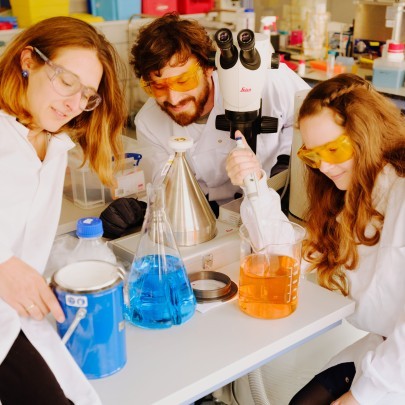
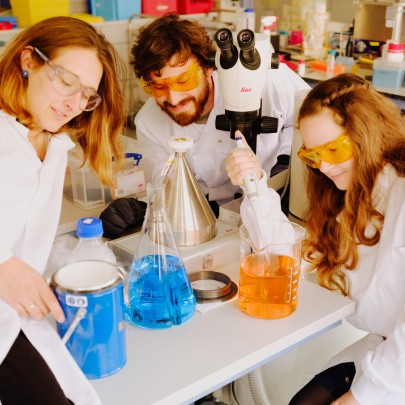
What does the range of topics look like and who are the interviewees?
Kaysan: In the first season, we tried to cover as many topics as possible in ten episodes. So we have episodes on biology (for example “About X and Y Chromosomes”; “Genetic Circuits” and “RNA Aptamers”), chemistry (“Small molecular drug discovery”), physics (“Measuring CO² from Space” and “Modelling of radiation induced-lung injuries”) and information technology (“Drone swarms and lown mowers” and “Teaching robots”). As interview partners, we usually have PhD candidates, but sometimes also guests who are already one step further in their careers but have completed their PhD in recent years and are therefore still quite early in their careers.
What do you hope to gain from the offer?
Gebhardt: That's a good question. To be honest, we started our podcast because we enjoyed giving young scientists a voice and providing the public with insights into complex topics in simple terms. For me personally, the joy of the podcast is the most important thing. Of course, it's a great feeling when other people find the podcast just as exciting and can share our joy about it. I also learn a lot about new topics and interesting people with every episode.
What do you personally enjoy most about it?
Kaysan: What we enjoy most are the connections that arise through the podcast. You get to know a wide variety of people and subject areas. The enthusiasm that young researchers bring to their subject and how much they enjoy talking about their research topic is very fulfilling for us. It's not unusual to sit together for a while after the recording and continue talking about the research. Without the podcast, we probably wouldn't be so involved with other working groups and subject areas.
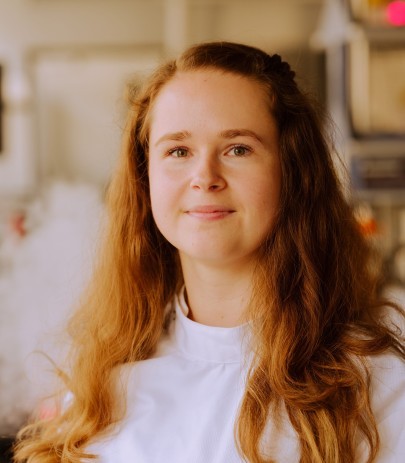
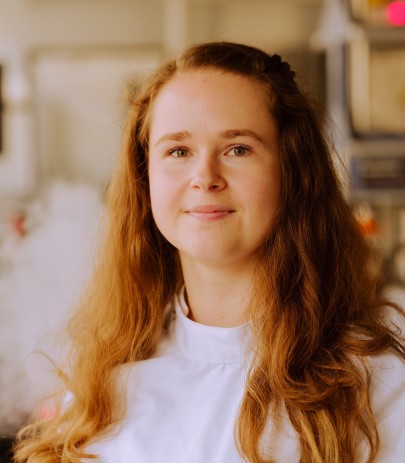
Have you already received feedback? What has it been like?
Gebhardt: We have received a lot of positive feedback on our podcast so far. Personally, I was particularly pleased with the interest shown by students when we handed out flyers in front of the TU Darmstadt canteens in May and asked students for interviews about their degree programmes. That was a great feeling!
But the feedback from our invited guests is also very nice. For most of them, it is the first interview in which they present their life and research in simple terms to the public (and not at a conference).
Kaysan: We were also positively surprised by the willingness of the participants to take part in the project. All of the interviewees we asked were also guests on an episode. This clearly shows how willing most people are to talk about their topic when they are given a platform to do so.
Are you planning further seasons of the podcast and further development?
Szabó: Yes, definitely, because we really enjoyed it! Our first season with ten episodes is already finished. After a break, however, we are planning to continue with a second season. We are still looking for a sponsoring partner and exciting guests. If you would like to try out podcasting and science communication with us, please get in touch at podcast.science.bites@gmail.com
The interview was conducted by Michaela Hütig



